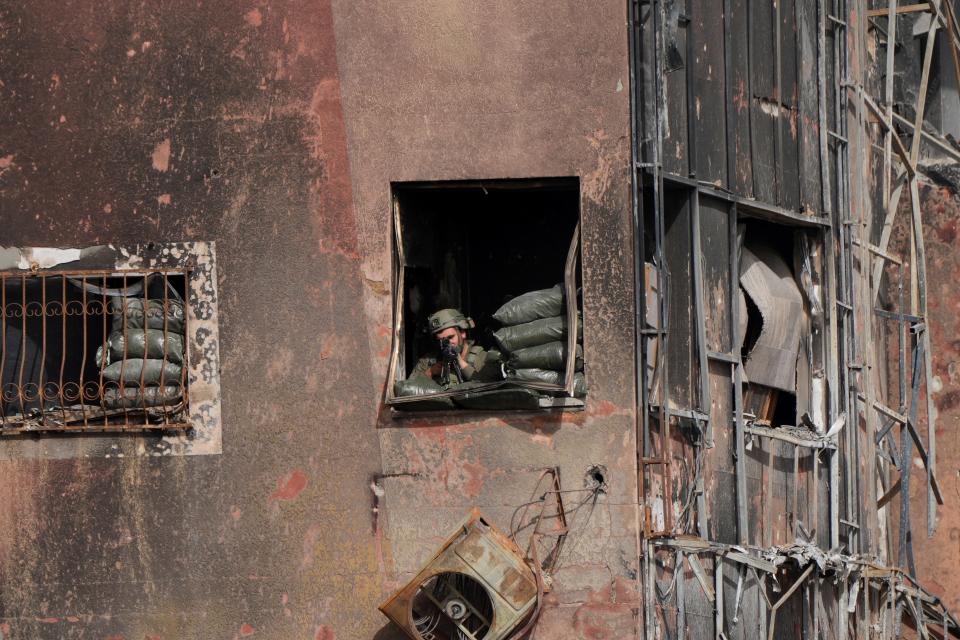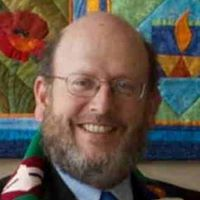To become peacemakers, we must be willing to listen to each other | Opinion
- Oops!Something went wrong.Please try again later.
“If peace is possible anywhere, it is possible everywhere,” said my old Quaker theology school professor, Lonnie Valentine. I try to keep this thought in mind whenever it feels like the world is falling apart all around me.
I was once invited to be on an interfaith panel about peace for a class at Maryville College. I was at the front table with representatives of other faiths: Jewish, Christian, Muslim, Buddhist, etc. When a student asked me the question, “How do Unitarian Universalists work for peace?” I answered, “We believe world peace will never come through people who refuse to hear the other side of an argument.”

Working for peace requires an ability to listen to more than one point of view. I once had the privilege of being a guest observer at a meeting of the Jewish/Palestinian Dialogue Project when my church served as a host site. Listening to the conversation, it became clear to me that the differing points of view were grounded in very painful histories of trauma. At such dialogues differences of opinion aren’t about abstract politics. They are about tangible feelings of grief, loss, fear, anger, anxiety and heartbrokenness. Dispassionate conversations are impossible when friends and family are in harm's way. Such conversations can be painful. Nevertheless, the path toward peace will always lead us back to such dialogue no matter how many missiles are launched, bombs dropped or innocent people killed in the interim.
I have a childhood memory of watching Israeli Prime Minister Menachem Begin and Egyptian President Anwar Sadat sign a peace treaty in 1978 with the support of the president of the United States, Jimmy Carter – a Jew, a Muslim and a Christian working together for peace. I was very young, but this memory reminds me that peace is possible when people of faith are willing to struggle for it. What I didn’t know at that time was that both Begin and Sadat were considered “terrorists” by their own governments when they were young men. It is a paradox of history that sometimes yesterday’s terrorists can become tomorrow’s peacemakers.
Hear more Tennessee voices: Get the weekly opinion newsletter for insightful and thought-provoking columns.
If peace is possible anywhere, it is possible everywhere. Our city has a history of being a place where people of all faiths can find common ground and work together for the common good. We hosted the World’s Fair in 1982 when the world came to Knoxville. After the terrorist attacks of Sept. 11, 2001, people of all faiths gathered in a mosque to oppose both terrorism and religious bigotry. A rabbi, an imam and other clergy led a litany based on the title of Dr. Martin Luther King Jr.’s last book, saying, “Where do we go from here, chaos or community?” The people shouted, “We choose community.”
In 2017 Muslims, Jews, Christians and more gathered at the Arnstein Jewish Community Center to learn how to be “upstanders, not bystanders” cooperating on anti-bullying efforts to confront antisemitism, Islamophobia and other forms of hate. Striving to become peacemakers in our own neighborhoods, schools, workplaces and communities. Working together to keep everyone safe.
When war breaks out it is tempting to say, "God is on our side," when in fact God is on the side of everyone who is suffering. Peace will never come through people who refuse to hear the other side of an argument. Peace will never come through people unwilling to listen to another person’s suffering. However, I have seen my friends and neighbors working together for peace in our city and in our state. If peace is possible here, one day it might be possible everywhere.

And every one 'neath their vine and fig treeShall live in peace and unafraidAnd into plowshares turn their swords,Nations shall learn war no more
The Rev. Chris Buice is minister of the Tennessee Valley Unitarian Universalist Church.
This article originally appeared on Knoxville News Sentinel: Opinion: To become peacemakers, we must listen to each other

